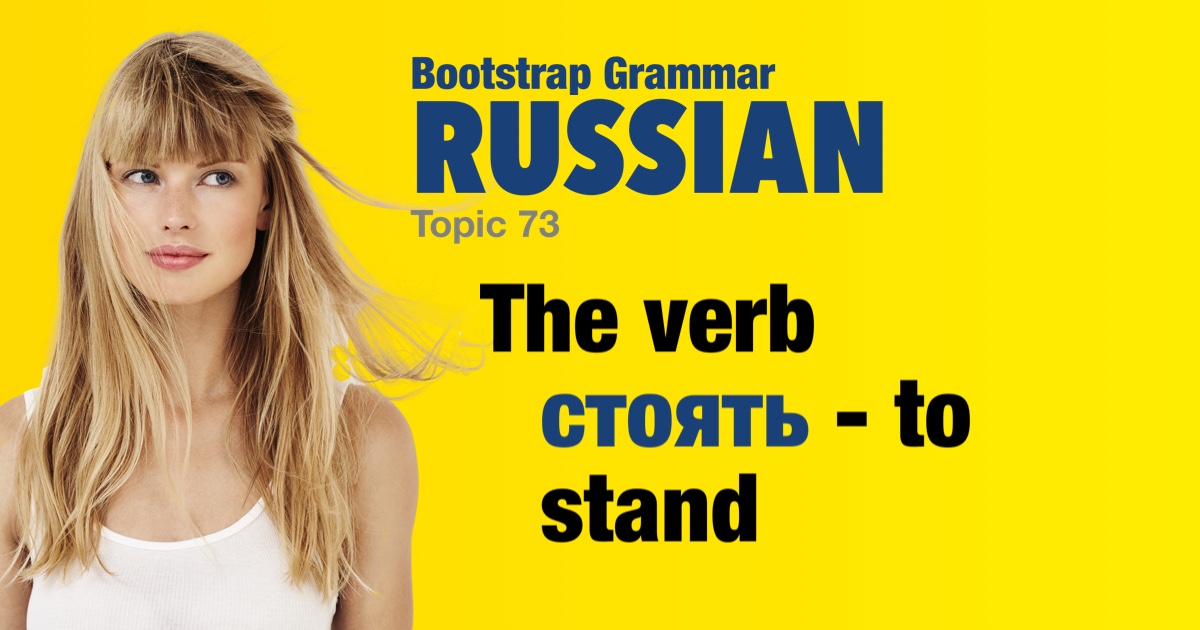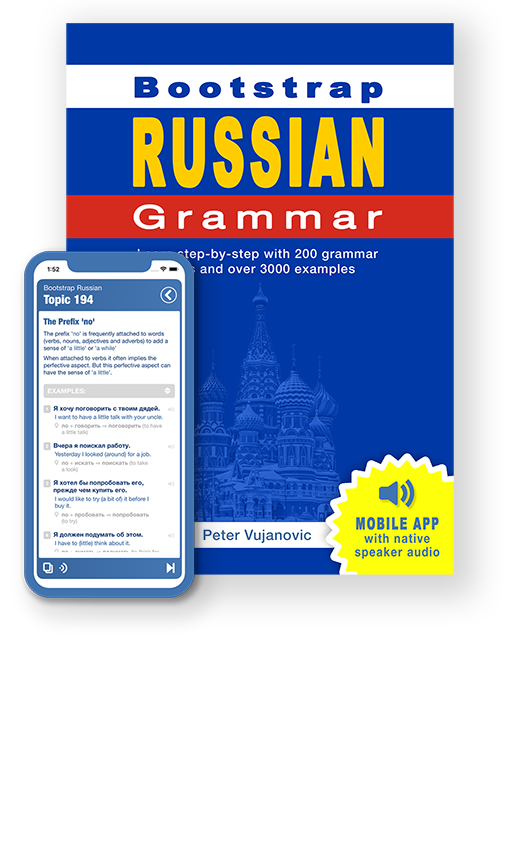Russian grammar - The verb стоять - to stand |
|||
|
|||
стоять means 'to stand' and is also used as 'to be situated'. Its conjugations are somewhat irregular: • Present tense: я стою (I stand); ты стоишь (you stand); он/она/оно стоит; мы стоим; вы стоите; они стоят • Past tense: он стоял, она стояла, оно стояло, вы/мы/они стояли |
| Examples: | |
|
Покупатели стоят в очереди.
Buyers stand in line.
|
|
|
Дом стоит в поле.
The house is/stands in a field.
|
|
|
Почему вы стоите здесь?
Why are you (plural) standing here?
|
|
|
Вкусное блюдо стояло на столе долго.
The tasty dish stood on the table for a long time.
|
|
|
Деревья стоят в ряд.
The trees are (standing) in a row.
|
|
|
Они стояли на коленях.
They were on (their) knees.
|
|
|
Машина стояла в гараже.
The car was/stood in the garage.
|
|
|
Автобус стоит на остановке.
The bus is (standing) at the bus stop.
|
|
 |
|




